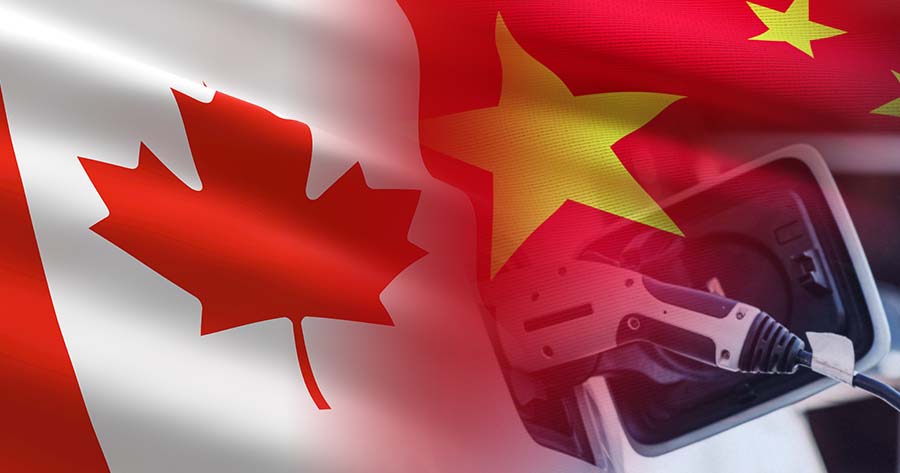Canada announced on Monday its decision to impose a 100% tariff on Chinese-made electric vehicle imports, matching US tariffs, in line with similar actions outlined by the European Commission.
The move came after US national security advisor Jake Sullivan urged Canadian Prime Minister Justin Trudeau and cabinet ministers to take this step during a meeting on Sunday. Sullivan is scheduled to visit Beijing on Tuesday.
Trudeau also disclosed that Canada will apply a 25% tariff on Chinese steel and aluminum, further intensifying trade tensions.
The Chinese government is expected to express concerns regarding American tariffs to Sullivan as part of China’s efforts to revive its economy post the Covid-19 pandemic. Earlier in May, US President Joe Biden imposed significant tariffs on various Chinese products, including electric vehicles, advanced batteries, solar cells, steel, aluminum, and medical equipment.
Sullivan emphasized the importance of a unified stance among nations, stating that coordinated measures benefit all parties involved.
Meanwhile, Biden has criticized Chinese subsidies for electric vehicles and other consumer goods, arguing that these unfair advantages hinder fair competition in global trade.
Chinese companies can price EVs as low as $12,000 due to government support, while their solar cell, steel, and aluminum industries have the capacity to meet a significant portion of global demand, keeping prices competitive.
Trudeau justified Canada’s tariff decisions as a necessary measure to address shared challenges, emphasizing the significance of unity among nations to prevent a race to the bottom in trade practices. The only Chinese-made electric vehicles currently imported to Canada are from Tesla, produced at the company’s Shanghai facility.
Former Canadian ambassador to China, Guy Saint-Jacques, highlighted Canada’s close economic ties with the US as a driving factor behind its tariff alignment with the US. Saint-Jacques mentioned the possibility of Chinese retaliation in other sectors, pointing to barley and pork as potential targets due to alternative supply sources.





